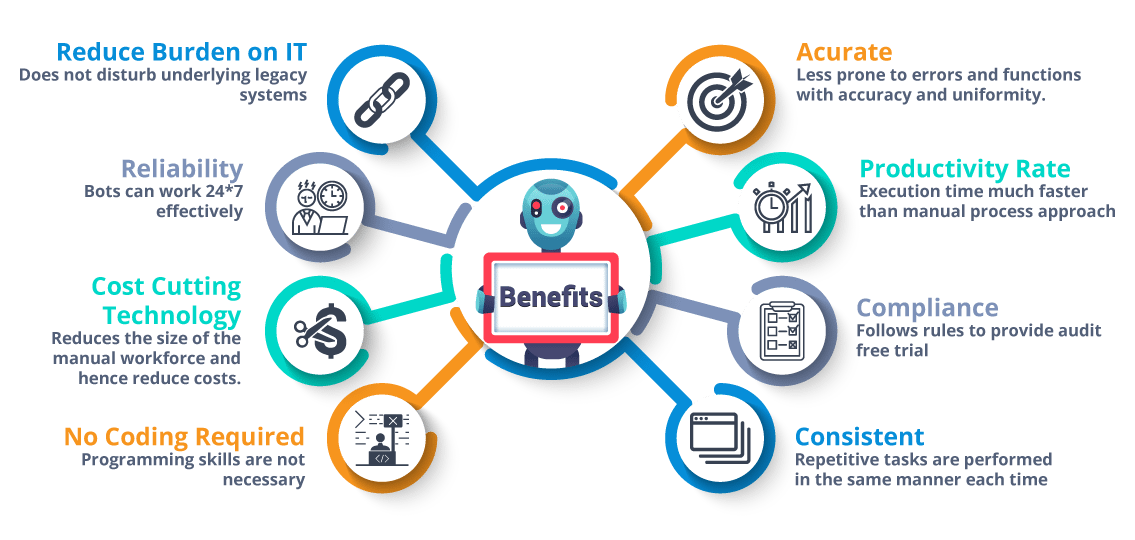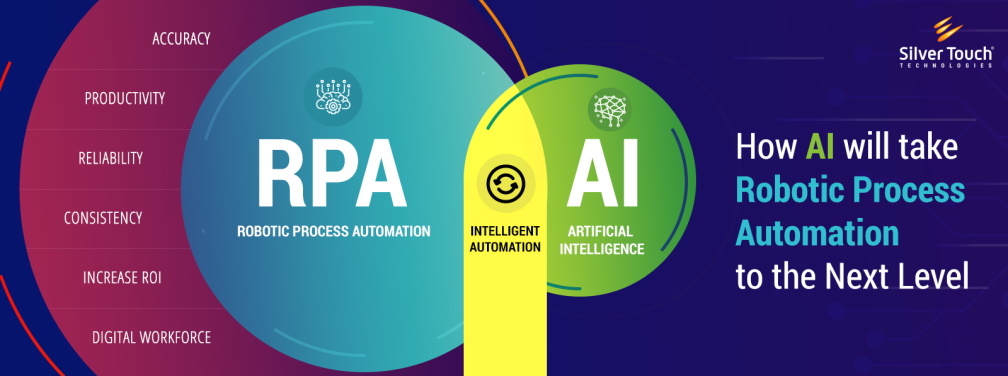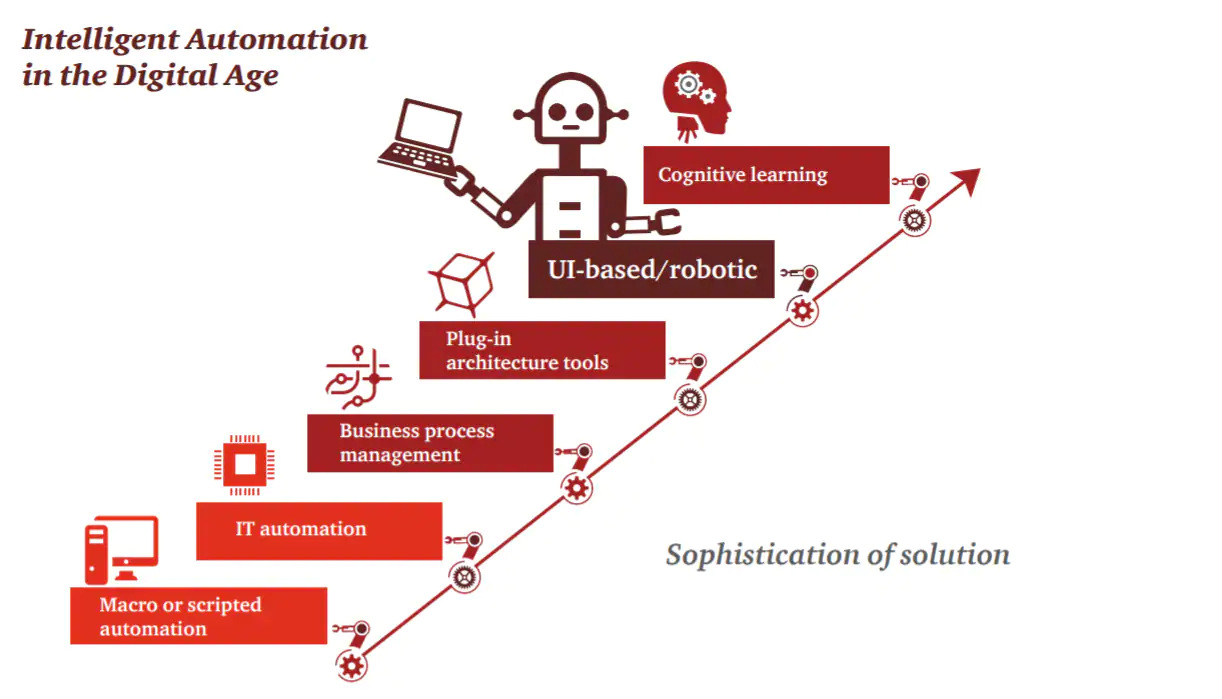RPA or (Robotic Process Automation) is a way to automate business processes by applying technology as a solution which is governed by business logic and structured inputs. There are many tools like Automation Anywhere or UiPath available in the market to facilitate and automate basic operations.
Those who have been working with Excel Spreadsheets can understand this as a process that builds powerful Macros that can do much more than just dealing with Excel Spreadsheets, but can do much more data-oriented tasks like validating various web forms, Data Entry, merging datasets, Data Clean up etc. and free up the user’s time to do more complicated tasks that need their attention. Many see RPA automating boring rules-based business processes and others see RPA as a step towards using machine learning (ML) and artificial intelligence (AI) tools in the long run.

RPA software is not part of an organization's IT infrastructure. Instead, it is on top of it, allowing a company to use the technology quickly and efficiently -- all without changing the current infrastructure and systems. What distinguishes RPA from traditional IT automation is the capability of the RPA software to be intelligent and adapt to changing situations, exceptions and new circumstances. Once RPA software has been trained to capture and translate the actions of specific tasks in current software applications, it can then modify data, activate responses, start new actions and communicate with other systems on its own.
Today, RPA software is particularly useful for companies who have many different and complicated systems that need to interact with each other fluidly. For example, if an online form from a human resource system is missing a zip code, normal automation software would identify the form as having an exception and an employee would handle the exception by looking up the correct zip code and entering it on the form. Once the form is complete, the employee might send it on to payroll so the information can be inserted into the organization's payroll system. With RPA technology, however, software that has the ability to adapt, self-learn and self-correct would handle the exception and interact with the payroll system without human help.

Robots are the current and future. The faster you make use of their potential, the faster you can create a competitive advantage for your company. Robotic Process Automation delivers direct profitability while increasing accuracy in organizations and industries. Enabling RPA to handle processes will not only change and improve your organization’s work-flow. It will also allow for superior scalability and flexibility within the enterprise, doubled by fast, customized response to particular demands. Software robots are easy to train and they integrate flawlessly into any system. Multiply them, and instantly create more as you go. They constantly report on their progress so you can go even bigger and better by using operational and business predictability, while improving strategically.

Copyright © | All Rights Reserved | Powered by Athteaa Solutions